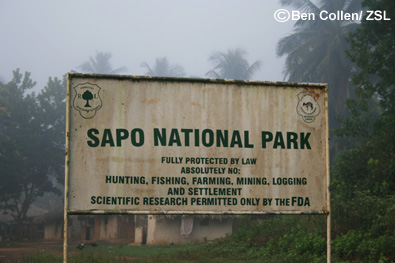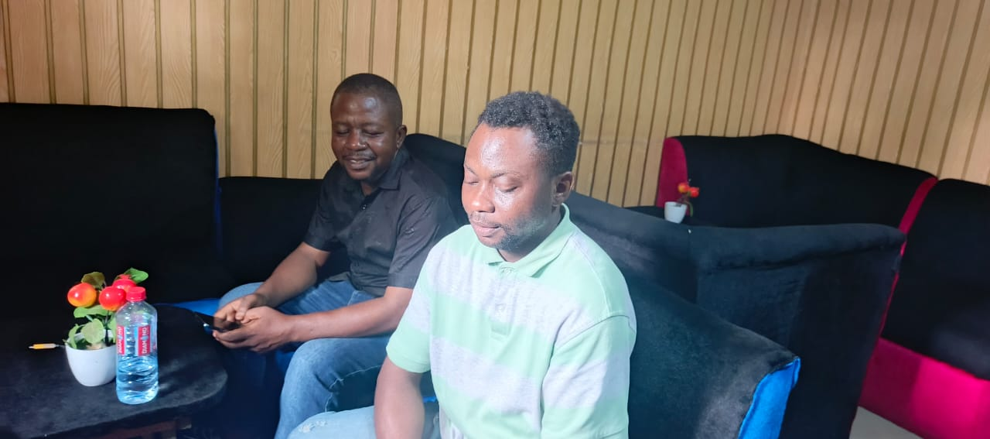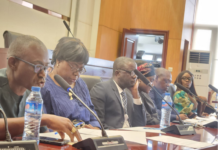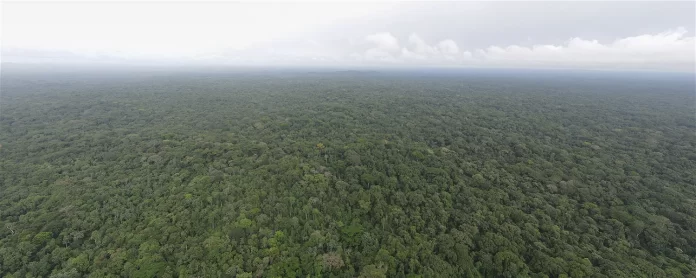By James Taina Karbah
The tranquil canopy of Sapo National Park—Liberia’s oldest and largest protected forest—was shaken this week by a controversial call from Sinoe County District #2 Representative, Rep. Romeo Quoih.
During a recent district visit, Rep. Quoih urged the government to degazette the park, stripping it of its protected status and opening the door to unchecked exploitation.
His remarks sparked swift and pointed condemnation from Journalists for the Protection of Nature (JPN Liberia), a leading conservation advocacy group safeguarding the country’s natural heritage.

In a statement issued over the weekend, the organization expressed profound disappointment, especially given Rep. Quoih’s past role as Acting Executive Director of the Environmental Protection Agency—a position once entrusted with defending the very forest he now seeks to dismantle.
“Rep. Quoih’s remarks do not only undermine Liberia’s conservation efforts,” JPN Liberia stated, “but also send the wrong signal to illegal miners, hunters, and poachers who continue to exploit the park.”
Established in 1983 and fortified by legislative approval, Sapo National Park stands as a cornerstone of Liberia’s environmental legacy. It is also central to the country’s international commitments, including the Bonn Challenge, which pledges the conservation of 1.5 million hectares of tropical forest.
JPN Liberia emphasized that far from being a neglected forest, Sapo has become a beacon of global collaboration. International partners such as GIZ, Fauna & Flora, Society for the Conservation of Nature (SCNL), and the Wild Chimpanzee Foundation are actively investing in conservation, eco-tourism, youth engagement, and sustainable livelihoods.
Communities, including Jalay Town, Jlatiken, near the park, are already reaping the benefits—clean water, training, village Savings and Loans, alternative livelihoods, and access to non-timber forest products.
Degazetting the park, the group warned, would not only jeopardize these gains but risk alienating development partners whose support is vital to Liberia’s environmental and economic future.
JPN Liberia also criticized the Forestry Development Authority (FDA) for its silence in the face of such a provocative statement. The group called on FDA Managing Director, Mr. Rudolph Merab, to publicly reaffirm the park’s legal status and ecological importance.
“In moments like these, the FDA’s voice is critical to counter misinformation and defend Liberia’s forest conservation program,” the statement read.

The organization concluded with a powerful reminder: conservation is not a barrier to development—it is its foundation. JPN Liberia urged the government to take immediate action by removing illegal occupants from the park and strengthening law enforcement to protect Liberia’s forests.
Meanwhile, the group appealed to development partners to ensure that conservation efforts translate into tangible benefits for communities surrounding Sapo, through sustainable livelihood programs and improved living conditions.























